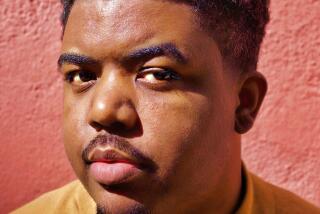Kinship runs deep
- Share via
Four years after “Back Roads,” a strong first novel marred only by melodramatic plot developments, Tawni O’Dell has tamed her excesses and broadened her vision to produce a work of stark grandeur with powerful emotional links to the under-appreciated masterpieces of John Steinbeck and Clifford Odets, yet with a tender empathy all her own.
“Coal Run” enfolds the personal odyssey of one troubled man within the history of his community. In 1967, when Ivan Zoschenko was 5, a mine explosion killed his father and 63 other men in Coal Run, Pa. Ivan was the town’s golden boy, a high school football star who could escape the grim choice faced by his peers: the mines or the military. At Penn State he seemed bound for fame and fortune in professional football -- until a drunken visit to the site of his father’s death resulted in a freak accident that left him with a crippled knee.
After 16 years of drinking and self-pity in Florida, Ivan returns to a western Pennsylvania ravaged by the coal industry’s decline. Shuttered stores and moribund banks stand on desolate streets just down the highway from the inevitable mall, where there are at least minimum-wage jobs for the wives of the unemployed miners, whose sometimes violent rage is Ivan’s professional concern as deputy to the easygoing local sheriff.
Ivan went to school with these folks; their fathers worked and died with his. They’re friends of his sister, Jolene. As he tries to discover what brought him back home, it seems at first that his self-destructiveness stems from guilt about running away from responsibilities that others have stoically shouldered. But his obsession with the parole of a high school teammate, jailed for 18 years after beating his young wife into a coma, reveals that Ivan has a specific sin on his conscience.
Ivan is vulnerable and intelligent (though obtuse about women), and O’Dell engages him with a host of believably complex characters. But the real drama in “Coal Run” springs from Ivan’s relationship with his hometown and its values. “How can I envy something I don’t want? How can I admire a situation I pity?” He finds the answer at the annual memorial service for miners killed in 1967, buried on donated land in coffins the townspeople made themselves. The J&P; Coal Co. would neither provide money for burial costs nor supply trucks to transport the caskets -- “something to do with insurance reasons,” Ivan remarks.
To this corporate stinginess, O’Dell counterposes the collective commitment of people to care for one another. Her wounded characters struggle; the doctor makes unpaid house calls to vaccinate kids whose families have lost their health benefits; the granddaughter of the local bank president uses her inheritance to establish a relief fund for the dead miners’ families. Ivan comes to realize that they never gave up on him even when he gave up on himself. “You always belong to where you’re from,” he says in one of the book’s loveliest scenes. “No one can turn you away as long as you can say, ‘This is where I’m from.’ ”
O’Dell shows Ivan drawing strength from his battered but steadfast community to come to terms with his past and reclaim hope for the future. It’s a pleasure to see such a gifted, ambitious writer reinvigorating the tradition of social conscience combined with personal passion that has illuminated some of the finest, most moving works in American literature. *
More to Read
Sign up for our Book Club newsletter
Get the latest news, events and more from the Los Angeles Times Book Club, and help us get L.A. reading and talking.
You may occasionally receive promotional content from the Los Angeles Times.









